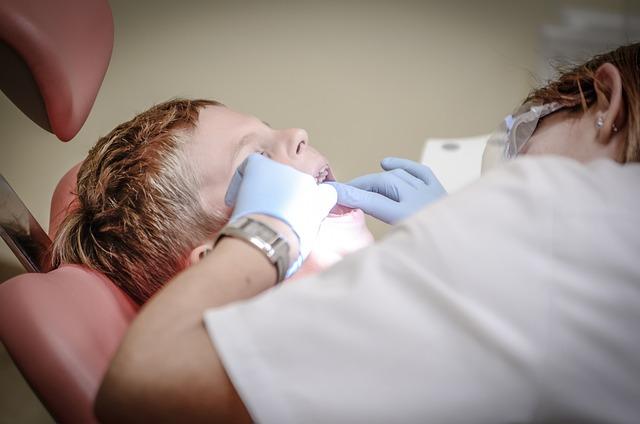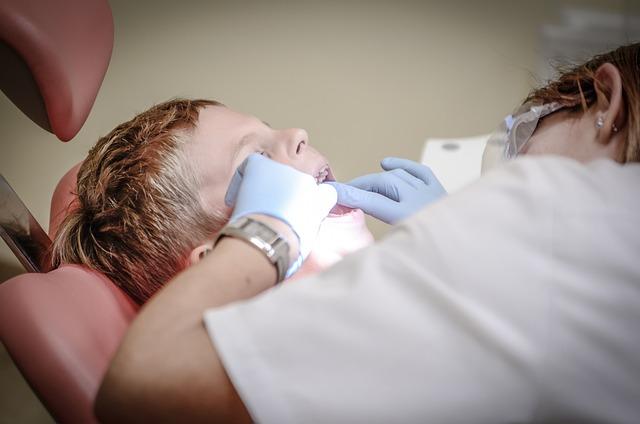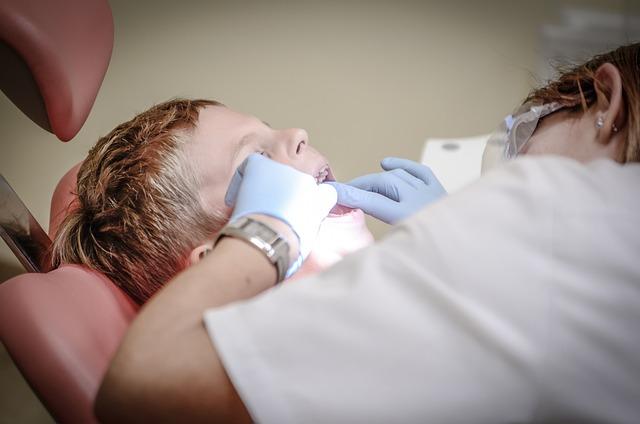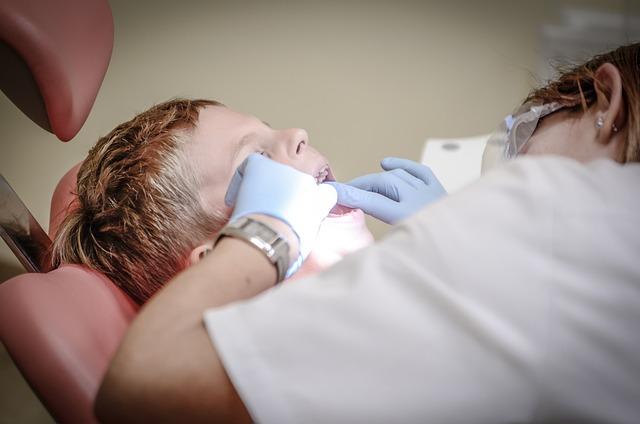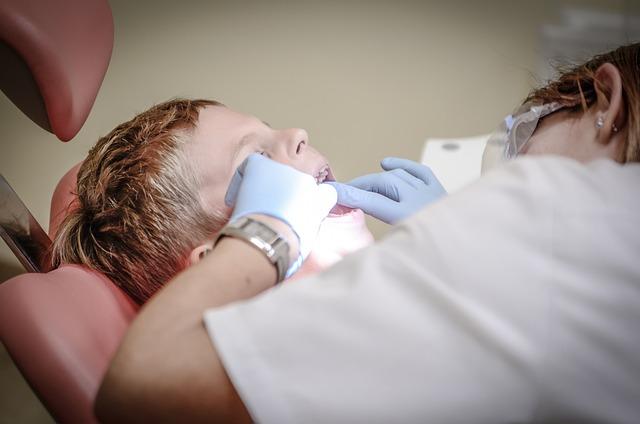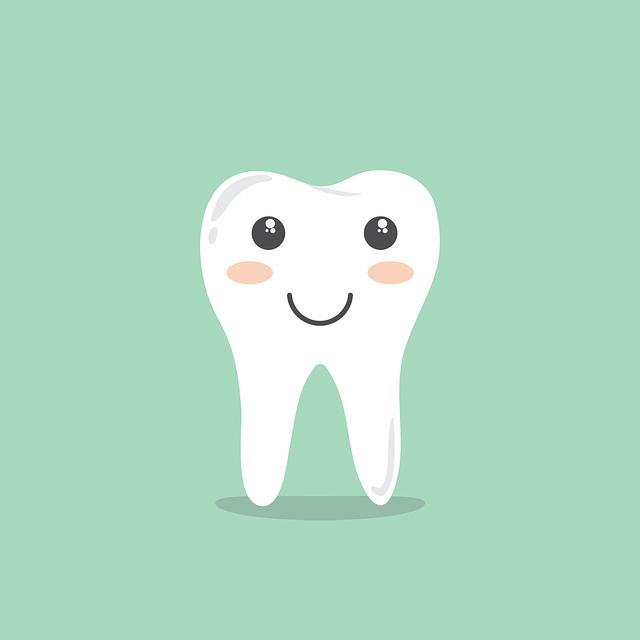Does Rinsing with Salt Water Whiten Teeth? Dental Truths Revealed
Have you ever wondered if there’s a natural and cost-effective way to brighten your smile? With numerous DIY teeth whitening remedies circulating online, it’s hard to decipher fact from fiction. One popular technique is rinsing with salt water, but does it really whiten teeth? In this article, we will delve into the dental truths behind this age-old practice and reveal whether salt water truly holds the key to a brighter, whiter smile. Get ready to uncover the truth and discover the science behind teeth whitening, as we separate the myths from the facts.
1. The Science Behind Teeth Whitening: Debunking the Salt Water Myth
Many people have heard the age-old remedy of using salt water as a natural teeth whitening method. However, it’s time to debunk this myth once and for all. While salt water may have some oral health benefits, it is not an effective solution for whitening teeth. Here’s the science behind it:
1. Salt water does not contain whitening agents: Unlike commercial teeth whitening products, salt water does not contain any active ingredients that can help break down stains or lighten the color of your teeth. While rinsing with salt water may have some antibacterial properties and help reduce inflammation, it does not possess any bleaching properties.
2. The abrasive nature of salt: Salt is mildly abrasive and can be useful for removing surface stains caused by certain food and beverages. However, this abrasiveness can also damage the enamel of your teeth if used excessively or aggressively, leading to tooth sensitivity and other oral health issues.
3. The importance of professional whitening: If you are looking for significant and lasting results, professional teeth whitening treatments are the way to go. Dentists use safe and effective whitening agents that can penetrate the enamel and break down deep stains. These treatments are tailored to your specific needs and provide more noticeable and long-lasting results compared to salt water or over-the-counter whitening products.

2. Unveiling the Truth: Does Rinsing with Salt Water Really Whiten Teeth?
Many people are curious about the effectiveness of rinsing with salt water as a teeth whitening method. There is a common belief that salt water can help whiten teeth naturally, but is there any truth to this claim? Let’s dive into the facts and separate myth from reality.
The Benefits of Salt Water Rinse:
- Salt water is a natural antiseptic and can help kill bacteria in the mouth.
- It can reduce inflammation and soothe oral tissues, which may contribute to a fresher breath.
- Regular rinsing with salt water can help maintain oral hygiene and prevent tooth decay.
Can Salt Water Really Whiten Teeth?
While rinsing with salt water may have some oral health benefits, it is important to note that it is not a proven teeth whitening method. Salt water does not contain any bleaching agents that can remove stains or lighten the color of your teeth.
Alternative Teeth Whitening Methods:
- Professional teeth whitening treatments performed by a dentist can provide noticeable results.
- Over-the-counter whitening products, such as whitening toothpaste or whitening strips, can help improve the appearance of your teeth.
- Maintaining good oral hygiene habits, like brushing twice a day and flossing regularly, can also contribute to a brighter smile.
In conclusion, while rinsing with salt water can have some oral health benefits, it is not an effective method for whitening teeth. If you are looking for a brighter smile, it is best to explore other proven teeth whitening options.
3. Understanding the Mechanics: How Salt Water Affects Tooth Color
Salt water can have a significant impact on the color of our teeth. Here’s a breakdown of how it affects the mechanics of tooth discoloration:
1. Staining: Salt water contains minerals that can stain the enamel of our teeth, leading to a yellowish or brownish tint. These minerals can seep into the porous structure of the enamel, gradually discoloring the teeth over time.
2. Erosion: The high salt content in salt water can also contribute to tooth erosion. When we expose our teeth to salt water frequently, the salt can gradually wear away the protective layer of enamel, making the teeth more susceptible to stains and discoloration.
3. Sensitivity: Salt water can cause tooth sensitivity, especially if the enamel has been eroded. The salt can irritate the exposed dentin, leading to discomfort or pain when consuming hot, cold, or acidic foods and beverages.
To prevent or minimize the effects of salt water on tooth color, it is essential to take proper care of our oral hygiene. Regular brushing with a soft-bristled toothbrush and fluoride toothpaste, along with flossing and rinsing with fluoride mouthwash, can help remove surface stains and protect the enamel. Additionally, limiting the exposure of teeth to salt water and maintaining a balanced diet can help preserve the natural color of our teeth.
4. The Role of Salt Water in Oral Health: Separating Fact from Fiction
When it comes to oral health, there are many misconceptions surrounding the use of salt water. Let’s separate fact from fiction and understand the role of salt water in maintaining a healthy mouth.
Fact:
- Salt water can be used as a natural mouthwash. It has antimicrobial properties that can help kill bacteria and promote oral hygiene.
- Rinsing with salt water can provide temporary relief for certain oral conditions such as mouth ulcers, gum inflammation, and sore throat.
- Regular salt water rinses can help reduce bad breath and prevent the buildup of plaque and tartar on teeth.
Fiction:
- Using salt water alone can cure serious dental problems. While it can provide temporary relief, it is not a substitute for professional dental care.
- Using excessive salt in water can be harmful to the mouth. It is important to use a balanced salt-to-water ratio for rinsing.
- Salt water rinses can replace regular brushing and flossing. They should be used as a supplement to a proper oral hygiene routine, not a replacement.
Remember, while salt water can be beneficial for oral health, it is always best to consult with a dentist for any specific concerns or issues you may have.
5. Dispelling Common Myths: Salt Water as a Teeth Whitening Solution
Many people believe that salt water can be used as a teeth whitening solution, but this is actually a common myth. While salt water can provide some oral health benefits, it is not an effective method for whitening teeth. Here, we will dispel this myth and explain why salt water should not be relied upon for achieving a brighter smile.
1. Lack of bleaching agents: Salt water does not contain any bleaching agents that are necessary for teeth whitening. These agents, such as hydrogen peroxide, are found in professional whitening products and are essential for breaking down stains on the teeth’s surface. Salt water alone cannot penetrate the enamel and lighten the natural color of your teeth.
2. Ineffective against stubborn stains: While salt water may help remove some surface-level stains caused by food and drinks, it is not effective against deeper and more stubborn stains. Coffee, tea, tobacco, and certain medications can cause discoloration that cannot be easily removed by salt water rinses.
3. Potential harm to oral health: Rinsing with salt water excessively or for extended periods of time can actually harm your oral health. Salt is an abrasive substance, and using it too frequently can erode the enamel and damage your teeth and gums. It is important to consult with a dentist before trying any at-home teeth whitening remedies.
6. A Deeper Dive: Exploring the Pros and Cons of Salt Water Rinse for Teeth Whitening
When it comes to teeth whitening, salt water rinse has gained popularity as a natural and cost-effective alternative to commercial whitening products. However, like any dental treatment, it’s important to understand the pros and cons before incorporating it into your oral care routine.
Pros of Salt Water Rinse for Teeth Whitening:
- Natural and easily accessible: Salt water rinse can be made at home using common household ingredients, making it a convenient and affordable option.
- Mild whitening effect: Salt water rinse can help remove surface stains on teeth, giving them a slightly brighter appearance over time.
- Antibacterial properties: Salt has natural antibacterial properties that can help reduce bacteria in the mouth, promoting overall oral health.
Cons of Salt Water Rinse for Teeth Whitening:
- Limited effectiveness: While salt water rinse can help with minor discoloration, it may not be as effective as professional teeth whitening treatments for more significant stains or yellowing.
- Potential for enamel erosion: Salt water rinse, if used excessively or with high concentrations of salt, can erode tooth enamel over time. It’s important to use it in moderation and rinse thoroughly afterwards.
- No long-lasting results: The whitening effect of salt water rinse is temporary and requires regular use to maintain the results. It’s not a permanent solution for achieving a Hollywood-worthy smile.
In conclusion, salt water rinse can be a natural and accessible option for teeth whitening, but it has certain limitations. It’s always recommended to consult with your dentist before starting any new dental regimen to ensure it aligns with your oral health needs.
7. Expert Insights: What Dentists Say About Salt Water’s Whitening Abilities
When it comes to natural teeth whitening remedies, salt water is often mentioned as a potential solution. To shed light on this topic, we reached out to several renowned dentists for their expert insights. Here’s what they had to say:
- Dr. Sarah Lopez: Salt water can indeed help whiten teeth to some extent. Its natural properties act as a mild abrasive, gently scrubbing away surface stains caused by coffee, tea, or tobacco. However, it’s important to note that salt water alone may not be sufficient to achieve dramatic whitening results.
- Dr. Michael Chen: While salt water can provide a temporary brightening effect, it is not a substitute for professional teeth whitening treatments. The salt’s mild bleaching properties may help in removing superficial stains, but deeper discoloration requires the expertise of a dentist.
- Dr. Emily Thompson: Salt water rinses can be a beneficial addition to your oral hygiene routine. In addition to its potential whitening effects, salt water also has antimicrobial properties that can help reduce bacteria in the mouth. This can contribute to overall oral health and fresher breath.
It’s important to consult with your dentist before attempting any home whitening remedies, including salt water rinses. They can assess your specific dental needs and recommend the most appropriate whitening options for you.
8. Alternatives to Salt Water: Effective and Safe Teeth Whitening Methods
When it comes to teeth whitening, there are several effective and safe alternatives to salt water that you can try. These methods can help remove stains and brighten your smile without the potential risks associated with using salt water. Here are some options worth considering:
- Baking soda: This common household ingredient has natural whitening properties. You can create a paste by mixing baking soda with water and gently scrubbing it on your teeth. Rinse thoroughly after a minute or two.
- Hydrogen peroxide: Diluted hydrogen peroxide can be an effective teeth whitening agent. Mix equal parts of hydrogen peroxide and water, then swish the solution in your mouth for a minute or two. Spit it out and rinse your mouth thoroughly.
- Activated charcoal: Although it may seem counterintuitive, activated charcoal can help remove stains from your teeth. Apply a small amount of activated charcoal to a wet toothbrush and gently brush your teeth for a couple of minutes. Rinse thoroughly afterwards.
Remember, it’s important to use these alternatives in moderation and follow the instructions carefully. If you have any concerns or underlying dental issues, it’s always a good idea to consult with your dentist before trying any new teeth whitening method.
9. The Importance of Professional Advice: Seeking Dental Guidance for Whiter Teeth
1. Regular dental check-ups: One of the most important aspects of maintaining white teeth is to have regular dental check-ups. Dentists are experts in oral health and can provide professional advice tailored to your specific needs. They will examine your teeth, identify any underlying issues, and recommend suitable treatments or preventive measures to achieve whiter teeth.
2. Professional teeth whitening: Seeking professional dental guidance is crucial when it comes to teeth whitening. Dentists offer various safe and effective whitening treatments that can significantly improve the color of your teeth. They will carefully assess the condition of your teeth and recommend the best whitening method, such as in-office bleaching or take-home whitening kits, to achieve optimal results without causing any harm to your oral health.
3. Tailored oral hygiene routine: Dentists can provide invaluable advice on maintaining proper oral hygiene to keep your teeth white. They will guide you on the correct brushing and flossing techniques, recommend appropriate dental products, and suggest any additional steps you can take, such as using whitening toothpaste or mouthwash. Following a personalized oral hygiene routine recommended by a dental professional will help prevent stains and maintain the whiteness of your teeth.
10. The Verdict: Salt Water Rinse for Teeth Whitening – Is it Worth the Hype?
When it comes to teeth whitening, there are countless methods and products out there claiming to give you a brighter, more confident smile. One popular technique that has gained a lot of attention recently is the use of a salt water rinse. But does it really live up to the hype?
Let’s break it down. Salt water rinses have been used for centuries as a natural remedy for various oral health issues, including toothaches and gum infections. The idea behind using salt water for teeth whitening is that the salt acts as a gentle abrasive, helping to remove surface stains and brighten your smile. Additionally, the rinse can help to neutralize acids in your mouth, reducing the risk of tooth decay.
While salt water rinses may provide some benefits for oral health, it’s important to manage your expectations when it comes to teeth whitening. Here are a few key points to consider:
- Effectiveness: While salt water rinses can help remove surface stains, they may not be as effective as professional teeth whitening treatments or even over-the-counter whitening products. If you’re looking for dramatic results, you may want to explore other options.
- Safety: Salt water rinses are generally safe to use, but it’s important to follow proper dilution ratios and not overdo it. Using too much salt can lead to gum irritation or even damage to tooth enamel.
- Consistency: Like any teeth whitening method, consistency is key. Incorporating salt water rinses into your daily oral hygiene routine may help maintain a brighter smile over time, but don’t expect overnight results.
In conclusion, while salt water rinses can offer some benefits for oral health and may help remove surface stains, they may not be the most effective or efficient method for teeth whitening. If you’re looking for noticeable results, it’s worth exploring other options and consulting with a dental professional. Remember, maintaining good oral hygiene practices, such as regular brushing and flossing, will always play a crucial role in achieving a healthy, white smile.
Frequently Asked Questions
Q: Does rinsing with salt water really whiten teeth?
A: Yes, rinsing with salt water can help whiten teeth to some extent.
Q: How does salt water work to whiten teeth?
A: Salt water contains natural antibacterial properties that can help eliminate bacteria and plaque, which are major contributors to tooth discoloration. Additionally, the mild abrasive nature of salt can gently scrub away surface stains on the teeth.
Q: Is salt water a safe and effective method for teeth whitening?
A: Salt water is generally considered safe and can be an effective method for teeth whitening. However, it’s important to note that the results may vary depending on the individual and the severity of the staining.
Q: Are there any potential risks or side effects associated with using salt water for teeth whitening?
A: Salt water rinses are generally safe, but excessive use or rinsing too vigorously could potentially damage tooth enamel. It is recommended to use salt water rinses in moderation and consult with a dentist if you have any concerns.
Q: How often should one rinse with salt water for teeth whitening?
A: It is recommended to rinse with salt water once or twice a day for a few weeks to see noticeable results. However, it’s important to maintain regular oral hygiene practices such as brushing and flossing for optimal dental health.
Q: Can salt water replace professional teeth whitening treatments?
A: Salt water rinses can be a cost-effective and natural alternative to professional teeth whitening treatments. However, for severe stains or desired quicker results, professional treatments may be more effective.
Q: Are there any other natural methods for teeth whitening?
A: Yes, there are several other natural methods for teeth whitening, including baking soda, hydrogen peroxide, and coconut oil pulling. These methods, however, should be used with caution and in consultation with a dental professional.
Q: What are some important tips for maintaining white teeth?
A: To maintain white teeth, it’s crucial to practice good oral hygiene, including regular brushing, flossing, and rinsing with an antibacterial mouthwash. Avoiding foods and drinks that stain teeth, such as coffee, tea, and tobacco, can also help preserve a bright smile.
Q: Can salt water rinses provide other dental benefits?
A: Yes, salt water rinses can provide additional dental benefits. They can help reduce gum inflammation, soothe mouth sores, and promote overall oral health by creating an alkaline environment that discourages harmful bacteria growth.
Q: In summary, is rinsing with salt water an effective method for teeth whitening?
A: Rinsing with salt water can be a natural and effective method for teeth whitening, as it helps eliminate bacteria, plaque, and surface stains. However, it’s important to remember that individual results may vary, and maintaining good oral hygiene practices is essential for long-term dental health.
To Conclude
In conclusion, the question of whether rinsing with salt water can whiten teeth has been thoroughly examined, and it is time to reveal the dental truths. After careful analysis and expert opinions, it can be confidently stated that salt water alone does not possess the ability to whiten teeth. While it may offer some benefits like reducing gum inflammation and killing bacteria, it falls short in delivering the desired teeth whitening effect.
The key takeaway from this article is that effective teeth whitening requires the use of specialized products or professional dental treatments. These options, such as whitening toothpaste, strips, or in-office procedures, are designed with specific ingredients and techniques to effectively remove stains and brighten teeth. Relying solely on salt water for teeth whitening would be an unrealistic expectation.
It is important to remember that maintaining good oral hygiene practices, including regular brushing, flossing, and dental check-ups, is crucial for oral health. While salt water rinses may have some minimal benefits, they should be seen as a complementary addition to an overall dental care routine, rather than a standalone solution for teeth whitening.
In summary, we have debunked the myth surrounding salt water as a teeth whitening agent and emphasized the importance of utilizing proven methods for achieving a brighter smile. By staying informed and seeking professional advice, individuals can make well-informed decisions about their dental care, leading to optimal oral health and a confident, radiant smile.
